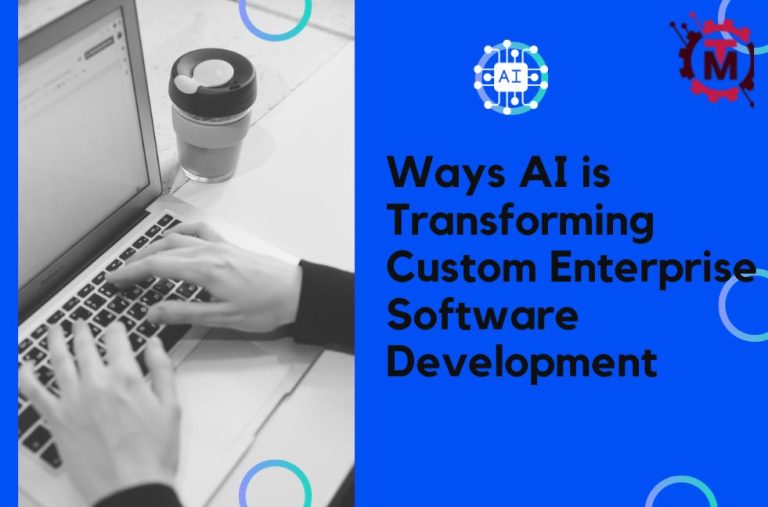Although artificial intelligence (AI) is not new to the corporate sector, its domination has reached previously unheard-of heights in recent years, especially after ChatGPT launched in November 2022. The globe has been enthralled by the introduction of this potent AI language model, which has caught the interest of entrepreneurs, corporate executives, IT specialists, and even residents of Silicon Valley.
As a result, the computer behemoth Microsoft has poured a staggering $10 billion toward the creation of generative AI in an effort to automate the operation of its Bing search engine. In the meantime, Google has implemented a “code-red,” reallocating significant resources to its AI divisions in reaction to Microsoft and OpenAI’s increased competitiveness. Baidu and Meta, the former Facebook, worked together to create the chatbot.
Meta’s share price experienced an incredible 201% increase in just one night as a result of this strategic alliance. AI is expected to make significant strides this year amid the wave of advances in the field of big data and technology. Forbes projects that the worldwide AI industry will develop at a compound annual growth rate (CAGR) of 37.3% from 2023 to 2030, when it is estimated to reach $1,811.8 billion.
Even though AI has been in the news lately, many people are still unsure about how it will fit into the enterprise’s digital transformation. Let’s examine the top eight ways that AI is leading this change in terms of efficiency and innovation through specialized corporate software development services.
Role of AI in Enterprise Digital Transformation
AI is a powerful force that is changing how businesses develop, construct, and implement custom software solutions. It is not just a catchphrase. The top eight ways that AI developments are changing business are listed below.

Automated Code Generation
Historically, writing code has required a lot of work and patience. This paradigm is being altered by AI, which automates the code generation process. With the use of machine learning algorithms that examine trends and best practices from current codebases, developers can now produce code snippets that cut down on errors and development time.
Enhanced Automation and Efficiency
Robotic process automation (RPA) and machine learning are two examples of AI technologies that automate repetitive and rule-based operations, transforming the software development lifecycle as a whole. Code creation, testing, and deployment are streamlined by this automation, which cuts down on the time and effort often expended during these stages. Developers can concentrate on more intricate and imaginative parts of software development with the help of AI, which promotes innovation and accelerates time-to-market.
Simplified GUI Testing
Artificial intelligence (AI) can facilitate the testing of graphic user interfaces (GUIs), ensuring that software runs smoothly on all platforms and devices and fulfills its intended duties. With the use of streamlined GUI testing, developers can determine whether the software will satisfy user needs or need changes by ensuring that it functions properly and looks well across a range of screen sizes. In this manner, the time is limited to resolving the problems that the testing process turned up.
Read Also: Why Code Analysis Is an Essential Tool for Software Developers
Predictive Analytics for Decision Making
Predictive Analytics for Decision Making Custom software development heavily relies on analytics driven by artificial intelligence. Developers can gain important insights into user behavior, system performance, and possible problems by utilizing AI and ML. Predictive analytics of this kind aid in resource optimization, demand forecasting, and well-informed decision-making at every software development stage. The quality and applicability of bespoke enterprise solutions are improved by this data-driven approach, which supports developers in making well-informed decisions.
Automated Bug Detection and Resolution
Finding and resolving problems is an essential component of developing software. Artificial intelligence (AI)-driven technologies can accelerate this process by automatically identifying and fixing faults. In addition to speeding up the debugging process, automated problem detection increases the overall stability and dependability of custom corporate software.
Predictive Maintenance for Software Infrastructure
The value of AI in software infrastructure predictive maintenance cannot be overstated. With the use of machine learning techniques, developers can proactively address and repair problems before they have an impact on operations by using system data analysis to identify probable failures or issues.
Continuous Learning and Adaptation
Over time, AI-driven systems are able to learn and adapt. This implies that tailored corporate software with AI capabilities can change over time in response to user feedback, shifting company needs, and new technological advancements. This flexibility guarantees that software stays applicable and efficient in a corporate environment that is changing quickly.
Personalized User Experience
By analyzing user actions and preferences, artificial intelligence (AI) in custom software constantly changes user experiences. By analyzing user behavior and making necessary adjustments, the program provides individualized functionality, content, and interfaces. This customized strategy helps increase productivity in addition to raising user satisfaction.
Streamlined Decision-Making Processes
AI improves decision-making by offering insights based on data. AI helps with strategic decision-making in software development initiatives by analyzing large, complicated data sets. This helps make decisions more informed by pointing out trends, possibilities, and possible hazards.
Read Also: The Role of Artificial Intelligence in Healthcare Information Systems
Cost and Time Efficiency
In the end, time-to-market and development expenses are greatly lowered by AI-driven custom software development. Resources and investments are optimized by the quicker delivery of high-quality software solutions made possible by automation, predictive capabilities, and increased efficiency.
Final Thoughts
Examining AI’s role in corporate digital transformation above, it is clear that integrating AI is drastically changing how we develop and manage custom enterprise software. But the voyage is far from over; with AI continuing to progress, the modern corporate world will have access to even more fascinating opportunities in the future.







